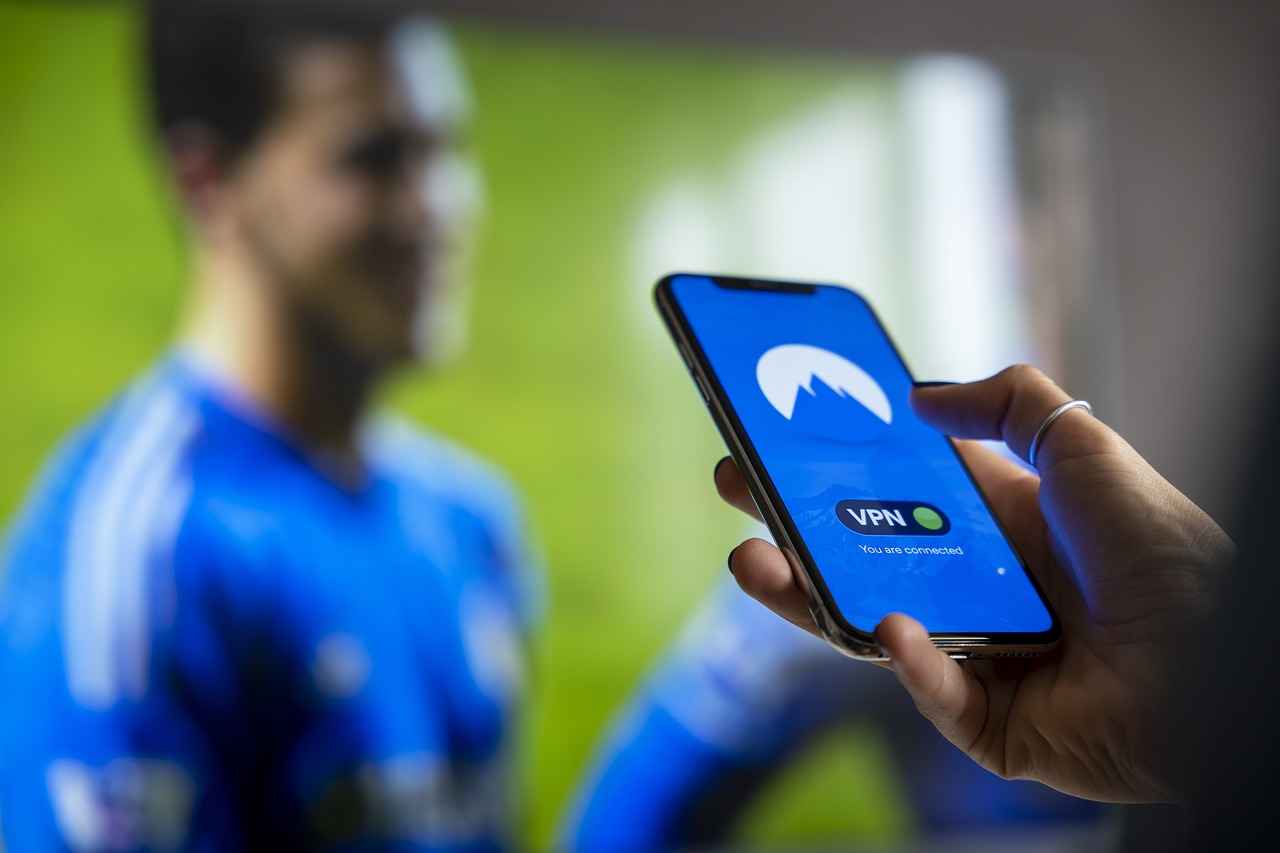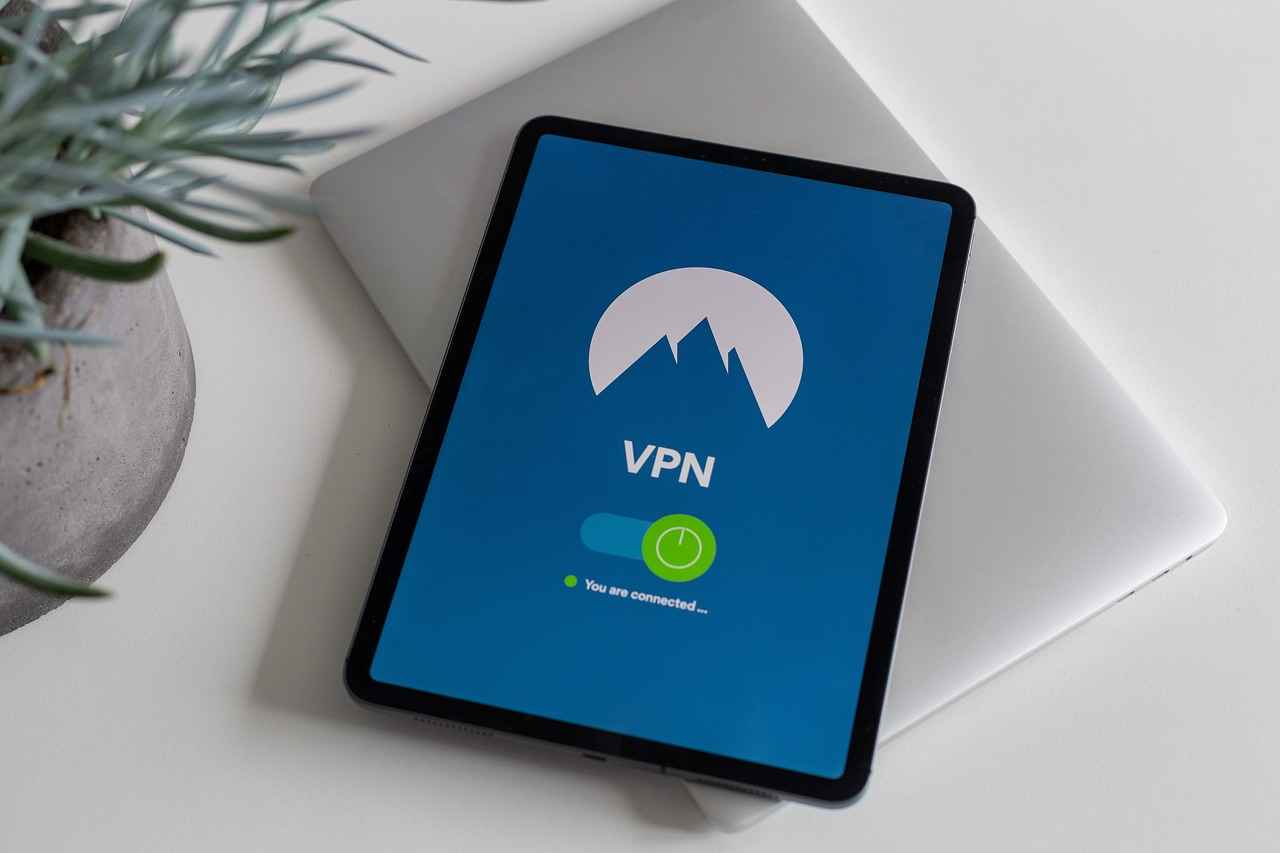This article delves into the best VPNs for streaming live sports, emphasizing their features, performance, and ability to bypass blackout restrictions. Sports enthusiasts will find optimal choices that enhance their viewing experience and ensure access to their favorite games.
Utilizing a VPN for streaming sports is essential for several reasons:
- Bypass Geographical Restrictions: Many sports events are restricted to specific regions. A VPN allows you to connect to servers in different countries, enabling access to content that may be unavailable in your location.
- Enhance Privacy and Security: VPNs encrypt your internet connection, safeguarding your data from prying eyes and enhancing your online security.
- Improve Streaming Quality: A reliable VPN can reduce buffering and improve overall streaming quality, ensuring a seamless viewing experience.
When selecting a VPN for sports streaming, consider the following features:
- Speed: High-speed servers are crucial for uninterrupted streaming, especially during live events.
- Server Locations: A wide range of server locations helps you bypass blackout restrictions effectively.
- Compatibility: Ensure the VPN is compatible with popular streaming platforms like ESPN+, Hulu Live, and others.
Several VPNs stand out in the realm of streaming live sports:
- ExpressVPN: Known for its lightning-fast speeds and extensive server network, ExpressVPN is a favorite among sports fans. It allows users to access content from various regions effortlessly.
- NordVPN: With robust security features and high-speed servers, NordVPN effectively bypasses geo-restrictions, providing a seamless viewing experience.
- Surfshark: Offering unlimited simultaneous connections, Surfshark is an excellent choice for families or groups who want to stream sports together.
Setting up a VPN for streaming sports is straightforward. Follow these steps:
- Choose the Right VPN Service: Research and select a VPN that meets your needs regarding speed, server locations, and user reviews.
- Download and Install: Download the VPN application from the official website and follow the installation instructions.
- Connect to a Server: Open the VPN application and connect to a server in the region where the sports event is accessible.
- Start Streaming: Once connected, navigate to your preferred streaming service and enjoy the game!
Even with a VPN, you may encounter some common streaming issues:
- Buffering and Lag: To minimize these issues, choose a VPN with high-speed servers and connect to a server close to your location.
- Geo-blocking and VPN Detection: Some streaming services actively block VPN traffic. Opt for VPNs that offer obfuscation features to bypass detection.
Understanding the legal landscape surrounding VPN use for streaming is crucial:
- Copyright Laws: Familiarize yourself with copyright laws in your region, as accessing certain content through a VPN may violate terms of service.
- Terms of Service Violations: Many streaming platforms prohibit VPN usage in their terms of service. Be aware of these rules to avoid potential penalties.
By carefully selecting a VPN and understanding its features, sports fans can enjoy live broadcasts without the frustration of blackout restrictions. With the right tools, every game becomes accessible, ensuring that you never miss a moment of the action.

Why Use a VPN for Streaming Sports?
In today’s digital age, sports enthusiasts are increasingly turning to Virtual Private Networks (VPNs) to enhance their viewing experience. A VPN serves as a powerful tool that allows users to circumvent geographical restrictions and blackouts that often hinder access to live sports events. This article delves into the various benefits of using a VPN for streaming sports, highlighting its ability to provide uninterrupted access to your favorite games from anywhere in the world.
One of the primary advantages of utilizing a VPN for streaming sports is its capability to bypass geo-blocks. Many sports leagues and broadcasters impose regional restrictions, meaning that certain games are only available to viewers in specific locations. For instance, a highly anticipated game may be broadcast live only in the United States, leaving international fans feeling excluded. By connecting to a VPN server located in the U.S., users can easily access these broadcasts, ensuring they never miss a moment of the action.
Moreover, VPNs can help users avoid blackouts that occur during specific games. Blackouts typically happen when a game is not available for broadcast in a particular area due to licensing agreements. With a VPN, fans can connect to a server in a different region where the game is available, effectively circumventing these restrictions and enjoying live sports without interruptions.
In addition to bypassing geographical barriers, using a VPN significantly enhances privacy and security while streaming online. Many sports fans may not realize that their online activities can be tracked by ISPs and other third parties. A VPN encrypts your internet connection, making it difficult for anyone to monitor your online behavior. This added layer of security is especially important when accessing public Wi-Fi networks, which are often less secure and more vulnerable to cyber threats.
Furthermore, a reliable VPN can improve the overall streaming experience. Many users report that their connection speeds remain stable even when using a VPN, allowing for smooth streaming without buffering. This is particularly important for live sports, where every second counts and delays can disrupt the viewing experience. By choosing a high-quality VPN with a robust server network, users can enjoy fast and reliable access to their favorite sports content.
Finally, using a VPN for streaming sports can open up a world of content that would otherwise be unavailable. This includes not only live games but also replays, highlights, and exclusive commentary from various broadcasters around the globe. By connecting to different servers, fans can explore a diverse range of sports content, enriching their overall viewing experience.
In summary, utilizing a VPN for streaming sports offers numerous benefits, including the ability to bypass geographical restrictions and blackouts, enhanced privacy and security, and access to a broader range of content. Whether you are a die-hard fan or a casual viewer, a VPN can significantly enhance your sports streaming experience, allowing you to enjoy your favorite games without limitations.

Top Features to Look for in a Sports VPN
When diving into the world of sports streaming, selecting the right Virtual Private Network (VPN) is crucial. Not all VPNs are created equal, and understanding the key features that enhance your viewing experience can make a significant difference. Here, we outline the essential aspects to consider when choosing a VPN specifically for streaming live sports.
- Speed and Performance: A VPN’s speed is arguably its most critical feature for streaming. High-speed connections are essential to avoid buffering and interruptions during live broadcasts. Look for VPNs that offer dedicated servers optimized for streaming, as these can provide the necessary bandwidth to ensure smooth playback.
- Server Locations: The geographical spread of a VPN’s server network is vital for accessing various sports content. Ensure that the VPN has servers in countries where your desired sports events are available. This not only helps to bypass blackout restrictions but also allows you to access local sports channels that may not be available in your region.
- Compatibility with Streaming Services: Not all VPNs work seamlessly with popular streaming platforms. Before committing to a VPN, check its compatibility with services like ESPN, Hulu, or DAZN. Some VPNs are specifically designed to bypass geo-blocks on these platforms, enhancing your ability to watch live sports from anywhere.
- Low Latency: For real-time sports viewing, low latency is crucial. A good VPN minimizes lag, allowing you to enjoy live events without delays that could affect your enjoyment. Look for VPNs that advertise low latency rates, especially during peak hours when internet traffic is high.
- Unlimited Bandwidth= Streaming live sports can consume a significant amount of data. Choose a VPN that offers unlimited bandwidth to avoid throttling during critical moments of the game. This ensures that you can watch without worrying about hitting a data cap that could interrupt your viewing experience.
- Security Features: While speed and access are essential, security should not be overlooked. A good VPN should offer strong encryption protocols to protect your data and privacy while streaming. Look for features like a kill switch, which disconnects your internet if the VPN connection drops, ensuring your online activity remains private.
- User-Friendly Interface: A VPN with a straightforward and intuitive interface can significantly enhance your experience. Look for VPNs that are easy to install and configure, allowing you to start streaming with minimal hassle. A user-friendly app can make connecting to servers and managing settings a breeze.
- Customer Support: Reliable customer support is crucial, especially if you encounter issues while streaming. Opt for VPNs that offer 24/7 customer service through live chat or email. This ensures that you can get help whenever you need it, minimizing downtime during live events.
By considering these features, you can select a VPN that not only meets your streaming needs but also enhances your overall sports viewing experience. Remember, a well-chosen VPN can make all the difference in accessing your favorite games from anywhere in the world.
Speed and Performance
When it comes to streaming live sports, speed and performance are paramount. A fast and reliable connection is crucial for enjoying the action without interruptions. In the world of sports streaming, even a second of buffering can ruin a thrilling moment, making it essential to choose the right VPN that guarantees high-speed servers.
To ensure smooth playback during crucial moments of the game, look for VPNs that offer high-speed servers. These servers are designed to handle large amounts of data, which is necessary for streaming high-definition content. A VPN with optimized servers can significantly enhance your viewing experience by minimizing delays and ensuring that your connection remains stable.
- Server Speed: The speed of a VPN server is measured in megabits per second (Mbps). For streaming, a speed of at least 25 Mbps is recommended to enjoy HD quality without interruptions.
- Connection Stability: A reliable VPN connection should maintain a consistent speed. Frequent drops in connection can lead to frustrating interruptions, especially during critical game moments.
- Server Load: Choose a VPN that provides information about server load. A lower server load typically means faster speeds, as fewer users are sharing the same bandwidth.
Furthermore, low latency is essential for real-time sports viewing. High latency can result in delays that affect your enjoyment of live events. A good VPN minimizes lag, ensuring that you can watch the action as it unfolds. For sports fans, this is not just a feature; it’s a necessity.
Additionally, consider the bandwidth limitations imposed by some VPNs. Some services may restrict your bandwidth, which can hinder streaming quality. Opt for a VPN that offers unlimited bandwidth, allowing you to access live sports broadcasts without worrying about hitting a data cap.
In summary, when selecting a VPN for streaming live sports, prioritize speed and performance. Look for features like high-speed servers, low latency, and unlimited bandwidth to ensure an optimal viewing experience. By doing so, you can enjoy every moment of your favorite games without the frustration of interruptions or lag.
Importance of Low Latency
In the world of live sports streaming, low latency plays a crucial role in enhancing the viewing experience. Latency refers to the delay between the action occurring in real-time and the moment it is displayed on your screen. This delay can be particularly frustrating for sports enthusiasts who thrive on the excitement of live events. A high latency can lead to a disjointed viewing experience, where fans are left reacting to plays that they have already seen on social media or heard about through other channels.
To fully appreciate the thrill of a live game, it is essential to minimize this lag. A good VPN can significantly reduce latency, ensuring that you are watching the game as it unfolds without any interruptions. This is especially important during critical moments, such as last-minute goals or game-winning plays, where every second counts. If you are streaming a match with a high latency, you might find yourself cheering for a play that has already concluded, which can diminish the excitement of the game.
Moreover, low latency is not just about enjoyment; it can also influence your engagement with the game. Many fans participate in live discussions, betting, or fantasy sports leagues that require real-time information. If your stream is delayed, you could miss out on key opportunities to interact with fellow fans or make informed decisions in your fantasy leagues. This is where a quality VPN shines, as it optimizes your connection to provide a smoother and more immediate viewing experience.
When selecting a VPN for sports streaming, it is vital to consider its capability to maintain low latency. Look for services that offer high-speed servers and have a reputation for reliable performance. Additionally, a VPN with a wide array of servers can help you connect to locations closer to the event’s broadcasting source, further reducing latency.
Another factor to consider is the VPN’s ability to handle high traffic volumes. During major sporting events, many viewers will be online simultaneously, which can lead to congestion and increased latency. A VPN that can manage this traffic effectively will ensure that you have a seamless streaming experience, even during peak times.
In conclusion, low latency is essential for anyone serious about enjoying live sports. By choosing a VPN that prioritizes speed and reliability, you can ensure that your viewing experience is as thrilling and immersive as it should be. Whether you are a die-hard fan or a casual viewer, having a good VPN will significantly enhance your ability to enjoy live sports without the frustration of delays.
Bandwidth Limitations
When it comes to streaming live sports, having a reliable VPN is essential for an uninterrupted experience. One of the key factors to consider is bandwidth limitations. Many VPN services impose bandwidth caps that can significantly hinder your ability to enjoy high-quality streaming. This limitation can lead to buffering, poor video quality, and an overall frustrating viewing experience.
Understanding Bandwidth Limitations
Bandwidth refers to the maximum rate of data transfer across a network. When a VPN imposes a bandwidth limit, it restricts the amount of data you can use, which can directly affect your streaming quality. For sports fans, this can mean missing out on crucial moments during a game due to lag or buffering issues.
Why Unlimited Bandwidth is Crucial
- Seamless Streaming: Unlimited bandwidth allows for smooth streaming without interruptions. This is particularly important during live sports events where every second counts.
- High Definition Quality: Many sports broadcasts are available in HD or even 4K resolution. Unlimited bandwidth ensures that you can enjoy these high-quality streams without any degradation in video quality.
- Multiple Devices: If you plan to stream on multiple devices simultaneously, unlimited bandwidth becomes even more critical. It allows you to share your connection without worrying about hitting a data cap.
Choosing the Right VPN
When selecting a VPN for streaming sports, it’s important to look for providers that explicitly offer unlimited bandwidth. This feature is often highlighted in their marketing materials. Additionally, consider the following:
- Server Locations: A VPN with a wide range of server locations can help you bypass geo-restrictions, allowing access to games that might otherwise be blacked out in your region.
- Speed and Performance: Look for VPNs that advertise high-speed servers. The faster the VPN, the less likely you are to experience buffering or lag during a live event.
- User Reviews: Check user reviews and expert opinions to gauge the real-world performance of the VPN, particularly for streaming purposes.
Potential Drawbacks of Bandwidth Limits
VPNs with bandwidth limitations can lead to several issues:
- Inconsistent Quality: You may experience fluctuating video quality, which can be particularly frustrating during critical moments of a game.
- Increased Latency: Bandwidth caps can lead to increased latency, making it difficult to enjoy real-time sports viewing.
- Service Interruptions: You might find that your connection drops or slows down significantly as you approach your bandwidth limit.
In conclusion, for sports enthusiasts looking to stream live events without interruptions, choosing a VPN that offers unlimited bandwidth is essential. This not only enhances the viewing experience but also ensures that you can enjoy your favorite games from anywhere in the world without the worry of data caps or throttling. Prioritize this feature when selecting a VPN to ensure a seamless and enjoyable sports streaming experience.
Server Locations
When it comes to streaming live sports, the importance of server locations cannot be overstated. A VPN that offers a wide range of server locations enables users to connect to different regions, which is essential for bypassing blackout restrictions that many sports events face. Blackouts often occur due to broadcasting rights and regional restrictions, preventing fans from accessing their favorite games. By utilizing a VPN with diverse server options, you can effectively sidestep these limitations and enjoy uninterrupted access to live sports.
For instance, if a particular sports event is only available in a specific country, connecting to a server located in that country allows you to appear as if you are accessing the content from there. This not only grants you access to the event but also enhances your overall viewing experience by ensuring that you can watch it in real-time, without any interruptions.
Additionally, having servers in multiple countries means that you can choose a location based on your specific needs. For example, if you are a fan of European football, selecting a server in the UK or Germany might provide you with access to a wider array of matches and tournaments. Similarly, connecting to a server in the United States can be beneficial for accessing major leagues like the NFL or NBA, which may have different broadcasting rules.
Moreover, the speed and performance of the server you connect to play a significant role in your streaming experience. A VPN with servers that are optimized for streaming can provide higher speeds, reducing buffering times and enhancing the quality of the video stream. Look for VPNs that advertise their servers as being specifically designed for streaming, as these are often equipped with the latest technology to ensure a smooth viewing experience.
Another factor to consider is the availability of dedicated IP addresses. Some VPN providers offer dedicated IP options, which can help in maintaining consistent access to streaming services. This is particularly useful if you frequently watch sports events, as it minimizes the chances of being flagged as a VPN user by streaming platforms, which can lead to restricted access.
To summarize, when selecting a VPN for streaming live sports, prioritize those that offer a broad range of server locations. This feature not only helps you bypass blackout restrictions but also enhances your viewing experience by providing access to various sports events across different regions. Make sure to evaluate the speed, performance, and additional features of the servers to ensure a seamless streaming experience.

Best VPNs for Streaming Live Sports
For sports enthusiasts, accessing live events can sometimes be a challenge due to geographical restrictions and blackout rules. Fortunately, using a Virtual Private Network (VPN) can help you bypass these limitations, allowing you to enjoy your favorite sports from anywhere in the world. In this section, we will explore some of the best VPNs tailored for streaming live sports, highlighting their unique features and advantages.
When choosing a VPN for sports streaming, it’s essential to consider factors such as speed, server locations, and compatibility with various streaming services. These elements play a crucial role in ensuring a smooth and uninterrupted viewing experience.
- ExpressVPN: Known for its lightning-fast speeds, ExpressVPN is a top contender for sports streaming. With servers in over 90 countries, it allows users to connect to various locations where sports broadcasts are available. This flexibility ensures that you can easily bypass blackout restrictions and enjoy live events without any hassle.
- NordVPN: This VPN is celebrated for its robust security features, making it a favorite among privacy-conscious users. NordVPN also boasts a vast network of servers, enabling seamless access to sports content across different regions. Its user-friendly interface makes it easy to set up, ensuring that even those new to VPNs can navigate it effortlessly.
- Surfshark: Surfshark stands out for its unlimited simultaneous connections, allowing you to stream on multiple devices at once. This feature is particularly beneficial for families or groups of friends who want to catch the game together. Additionally, Surfshark offers a range of servers optimized for streaming, ensuring minimal buffering and lag.
- CyberGhost: With dedicated servers for streaming, CyberGhost simplifies the process of finding the best connection for live sports. Its intuitive interface and extensive server network make it easy to connect to the fastest available server, providing a reliable streaming experience.
Each of these VPNs has its strengths, catering to different user needs. Whether you prioritize speed, security, or the ability to connect multiple devices, there’s a VPN that can enhance your sports streaming experience.
In addition to their impressive features, these VPNs also provide excellent customer support, ensuring that you can get help whenever you encounter issues. Many offer live chat support, comprehensive FAQs, and setup guides to assist you in getting started.
Ultimately, the best VPN for streaming live sports depends on your specific needs and preferences. By considering factors like speed, server availability, and compatibility with your favorite streaming platforms, you can make an informed decision that will enhance your sports viewing experience.
ExpressVPN
ExpressVPN is widely recognized as a premier choice for streaming live sports, thanks to its exceptional speed and reliability. With a focus on providing users with an uninterrupted viewing experience, ExpressVPN stands out among its competitors. Its extensive server network, which spans over 90 countries, allows sports fans to easily access content from various regions, making it a versatile option for international sports enthusiasts.
One of the key advantages of using ExpressVPN is its impressive connection speeds. The service prides itself on offering high-speed servers that ensure minimal buffering and lag, which is crucial during live sports events. Whether you’re watching a fast-paced soccer match or a thrilling basketball game, ExpressVPN’s optimized servers help maintain smooth playback, allowing you to enjoy every moment without interruptions.
In addition to speed, ExpressVPN excels in providing robust security features. The service employs AES-256 encryption, which safeguards your online activities from prying eyes. This level of security is particularly important for sports fans who may be accessing content from less secure networks, such as public Wi-Fi. With ExpressVPN, users can stream their favorite sports events with peace of mind, knowing that their data is protected.
Another noteworthy aspect of ExpressVPN is its user-friendly interface. The platform is designed to be intuitive, making it easy for both beginners and experienced users to navigate. With just a few clicks, you can connect to a server in a location of your choice, bypassing any geographical restrictions that may be in place. This simplicity is a significant advantage for those looking to quickly access live sports without dealing with complicated setups.
Furthermore, ExpressVPN offers a 30-day money-back guarantee, allowing users to test the service risk-free. This feature is particularly appealing for sports fans who want to ensure that the VPN meets their streaming needs before committing to a long-term subscription. The responsive customer support team is also available 24/7, ready to assist with any issues or questions that may arise during your streaming experience.
In summary, ExpressVPN is a top-tier VPN service that combines speed, security, and user-friendliness, making it an ideal choice for streaming live sports. Its extensive server network and commitment to maintaining high connection speeds ensure that sports enthusiasts can enjoy their favorite events without interruption. Whether you’re a casual viewer or a die-hard fan, ExpressVPN provides the tools necessary to enhance your sports streaming experience.
NordVPN
is widely recognized as a leading choice for sports enthusiasts looking to stream live events without interruptions. This VPN service combines robust security features with impressive speed, making it an ideal companion for those eager to watch their favorite sports from anywhere in the world.
One of the standout features of is its extensive network of servers. With over 5,400 servers located in more than 60 countries, users can easily connect to a server that allows them to bypass geo-restrictions and access content that may be blocked in their region. This is particularly beneficial for sports fans who want to watch exclusive broadcasts or events that are subject to blackout restrictions.
In addition to its vast server network, also prioritizes user privacy and security. It employs military-grade encryption to protect user data, ensuring that your online activities remain confidential. This level of security is crucial for those who are concerned about their personal information being compromised while streaming sports online.
Another significant advantage of using is its high-speed performance. The service is optimized for streaming, allowing users to enjoy live sports without the frustration of buffering or lag. This is particularly important during critical moments in a game, where every second counts. NordVPN’s commitment to speed means that you can watch your favorite teams in real-time without interruptions.
Moreover, NordVPN offers a user-friendly interface that makes it easy to connect to the desired server quickly. Whether you’re a tech-savvy individual or a novice user, navigating through the application is straightforward. This ease of use ensures that you can focus on enjoying your sports content rather than dealing with complicated setups.
Another feature worth mentioning is NordVPN’s SmartPlay technology, which is designed to enhance streaming capabilities. This feature automatically detects which server will provide the best performance for your chosen streaming service, ensuring a seamless experience. This is particularly useful for sports fans who want to access various platforms without the hassle of manually switching servers.
Furthermore, NordVPN allows for multiple simultaneous connections, meaning you can protect your devices while streaming on different screens. This is particularly advantageous for families or groups of friends who want to enjoy various sports events at the same time.
In summary, is a comprehensive solution for sports fans looking to enhance their streaming experience. With its combination of robust security, high-speed performance, and user-friendly features, it stands out as a top choice in the crowded VPN market. Whether you’re aiming to watch international games, bypass blackout restrictions, or simply enjoy a more secure online experience, NordVPN has the tools you need to make the most of your sports viewing.

How to Set Up a VPN for Streaming Sports
Setting up a VPN for streaming sports is a simple yet effective process that allows sports enthusiasts to access their favorite games without geographical restrictions. With the right VPN, you can enjoy uninterrupted streaming and enhance your online privacy. This guide will provide you with a step-by-step approach to get started quickly and efficiently.
Before diving into the setup process, it is essential to select the right VPN service that meets your streaming needs. Consider the following factors:
- Speed: Look for a VPN that offers high-speed connections to ensure smooth streaming.
- Server Locations: A wide range of server locations allows you to bypass blackout restrictions effectively.
- Compatibility: Ensure the VPN is compatible with your preferred streaming services.
- User Reviews: Read user reviews to gauge the reliability and performance of the VPN.
Once you’ve selected a VPN, the installation process is typically straightforward. Follow these steps:
- Download the VPN Software: Visit the official website of your chosen VPN and download the application.
- Install the Application: Open the downloaded file and follow the on-screen instructions to install the VPN on your device.
- Create an Account: If required, sign up for an account using your email address and a secure password.
- Log In: After installation, launch the application and log in using your credentials.
- Select a Server: Choose a server location that provides access to the sports content you want to view.
- Connect: Click the connect button to establish a secure connection to the selected server.
For the best streaming experience, consider adjusting the VPN settings:
- Protocol Selection: Choose a protocol that balances speed and security, such as OpenVPN.
- Enable Kill Switch: This feature ensures that your internet connection is cut off if the VPN disconnects, preventing data leaks.
- DNS Leak Protection: Ensure this feature is enabled to prevent your real IP address from being exposed.
After setting up and configuring your VPN, it’s crucial to test the connection:
- Visit a Streaming Service: Go to the website or app of the sports streaming service you want to use.
- Check for Accessibility: Ensure that the content is accessible without any geo-restriction messages.
- Stream a Game: Start streaming a live game to confirm that the connection is stable and the video quality is satisfactory.
If you encounter problems while streaming, consider these troubleshooting tips:
- Change Server: If streaming is slow or buffering, try switching to a different server.
- Clear Cache: Clear your browser or app cache to resolve any loading issues.
- Contact Support: If issues persist, reach out to your VPN provider’s customer support for assistance.
With these steps, you can set up a VPN for streaming sports efficiently. Enjoy your favorite games from anywhere in the world while maintaining your online privacy!
Choosing the Right VPN Service
Choosing the right VPN service is essential for a seamless streaming experience, especially for sports enthusiasts. With numerous options available in the market, it’s vital to consider various factors that can significantly impact your viewing pleasure. Here, we delve into the critical aspects to evaluate when selecting a VPN service tailored for streaming sports.
- Speed: One of the most important factors to consider is the speed of the VPN. A slow connection can lead to buffering and interruptions during live sports events. Look for VPNs that offer high-speed servers to ensure smooth playback.
- Server Locations: The availability of servers in various geographic locations is crucial. A VPN with a wide range of servers allows you to connect to regions where your desired sports content is accessible, helping you bypass blackout restrictions.
- User Reviews: Checking user reviews can provide insights into the reliability and performance of a VPN service. Look for feedback specifically related to streaming capabilities and customer support.
- Compatibility: Ensure that the VPN you choose is compatible with the streaming services you intend to use. Not all VPNs work seamlessly with every platform, so it’s essential to verify this compatibility.
- Security Features: A good VPN should offer robust security features to protect your online privacy. Look for services that provide encryption, a no-logs policy, and additional security protocols.
- Bandwidth Limitations: Some VPNs impose bandwidth caps that can hinder your streaming experience. Opt for a VPN that offers unlimited bandwidth to enjoy uninterrupted access to live sports broadcasts.
Performance is a critical metric when it comes to streaming sports. A VPN’s performance can be evaluated based on several parameters:
- Latency: Low latency is essential for real-time viewing, especially during live sports events. A good VPN minimizes lag, ensuring that you can watch games without delays that could affect your enjoyment.
- Connection Stability: Frequent disconnections can disrupt your viewing experience. Choose a VPN known for its stable connections to avoid interruptions during crucial moments of the game.
While many VPNs offer attractive pricing, it’s essential to assess the value they provide. Sometimes, cheaper options may compromise on speed or security. Consider the following:
- Trial Periods: Many reputable VPNs offer free trials or money-back guarantees. Take advantage of these offers to test the service before committing.
- Long-Term Plans: Often, subscribing to a long-term plan can lead to significant savings. However, ensure that the service meets your streaming needs before making a long-term commitment.
Reliable customer support can make a significant difference when troubleshooting issues. Look for VPNs that offer:
- 24/7 Support: Access to around-the-clock customer support can be crucial, especially during live events.
- Comprehensive FAQs: A well-structured FAQ section can help you resolve common issues quickly without needing to contact support.
In conclusion, selecting the right VPN service involves careful consideration of various factors such as speed, server locations, user reviews, and security features. By evaluating these aspects, you can find a VPN that not only meets your streaming needs but also enhances your overall viewing experience.
Installation and Configuration
Setting up a VPN for streaming sports can seem daunting, but the process is generally straightforward and user-friendly. Once you’ve selected a VPN that meets your streaming needs, the first step is to download the application. Most reputable VPN providers offer dedicated apps for various devices, including Windows, macOS, Android, and iOS.
- Download the VPN Software: Visit the official website of your chosen VPN service and download the appropriate version for your device. Ensure you are downloading from the official site to avoid malicious software.
- Installation Process: After downloading, open the installation file. Follow the on-screen prompts, which will guide you through the installation process. This usually involves agreeing to the terms and conditions and selecting an installation location.
- Account Setup: Once installed, open the application. You will typically need to log in using your account credentials. If you haven’t created an account yet, this can usually be done directly through the app or on the provider’s website.
- Configuration Settings: After logging in, you may want to configure the settings for optimal performance. Look for options such as selecting a server location, enabling the kill switch feature, and adjusting protocol settings. For streaming, choose a server located in a region where the sports content you want to access is available.
Optimizing for Streaming:To enhance your streaming experience, it’s crucial to select the right server. Most VPNs provide a list of servers optimized for specific purposes, including streaming. Choose a server that is closest to your geographical location to minimize latency and improve speed.
Additionally, some VPNs offer features like split tunneling, which allows you to decide which apps use the VPN connection and which do not. This can help in maintaining optimal speeds for other internet activities while streaming.
Testing Your Connection:Once you have configured your VPN, it’s advisable to test your connection. Open your preferred streaming service and check if the content is accessible. If you encounter any issues, try switching to a different server or adjusting your VPN settings.
In summary, installing and configuring a VPN for streaming sports is a simple process that can significantly enhance your viewing experience. By following the steps outlined above, you can ensure that you are set up for success, allowing you to enjoy your favorite sports without interruptions or geographical restrictions.

Overcoming Common Streaming Issues with a VPN
Streaming sports through a VPN can significantly enhance your viewing experience by allowing access to content that may be restricted in your region. However, users often face various challenges that can disrupt this experience. In this section, we will explore common streaming issues and provide practical solutions to ensure a seamless sports viewing experience.
- Buffering and Lag
One of the most frustrating issues encountered while streaming sports is buffering and lag. These interruptions can occur due to several factors, including slow internet speeds and the distance from the server you are connected to. To mitigate these issues, consider the following solutions:
- Select a High-Speed VPN: Choose a VPN known for its fast servers. Services like ExpressVPN and NordVPN are renowned for their speed, which is crucial for live sports streaming.
- Connect to Nearby Servers: Connecting to a server that is geographically closer to you can reduce latency. Most VPNs allow you to see the server load, so choose one that is less crowded for better performance.
- Upgrade Your Internet Plan: If buffering persists, consider upgrading your internet service plan. A higher bandwidth will ensure smoother streaming.
- Geo-blocking and VPN Detection
Some streaming platforms actively block VPN traffic, leading to frustrating geo-blocking messages. To overcome this hurdle, users can implement the following strategies:
- Utilize Obfuscation Features: Some VPNs offer obfuscation technology that disguises VPN traffic as regular internet traffic. This can help bypass detection by streaming services.
- Change VPN Protocols: Experimenting with different VPN protocols, such as OpenVPN or WireGuard, may help in avoiding detection and accessing blocked content.
- Switch VPN Providers: If your current VPN consistently fails to bypass geo-blocks, consider switching to a provider known for its ability to work with specific streaming services.
- Connection Drops
Connection drops can be particularly disruptive during live sports events. Here are some solutions to minimize this issue:
- Enable Kill Switch: A kill switch feature automatically disconnects your internet if the VPN connection drops, preventing your real IP from being exposed.
- Regularly Update Your VPN Software: Keeping your VPN client up-to-date ensures optimal performance and security, reducing the likelihood of connection drops.
- Inconsistent Streaming Quality
Inconsistent streaming quality can result from various factors, including server congestion and bandwidth limitations. To address this issue:
- Choose Unlimited Bandwidth VPNs: Opt for VPNs that offer unlimited bandwidth to avoid throttling during peak hours.
- Test Different Servers: If one server is slow, try connecting to another server within the same region to see if the quality improves.
By implementing these strategies, users can effectively overcome common streaming issues encountered while using a VPN. With the right approach, you can enjoy uninterrupted access to your favorite sports events, regardless of geographical restrictions.
Buffering and Lag
When streaming live sports, experiencing buffering and lag can be incredibly frustrating. These issues not only interrupt your viewing experience but can also lead to missing crucial moments of the game. Understanding how to minimize these problems is essential for any sports enthusiast.
One of the primary causes of buffering and lag is the speed of your internet connection. A slow connection can lead to delays in the data being transmitted, causing interruptions in your stream. To combat this, it is advisable to choose a VPN that is known for its high-speed servers. A VPN with a reputation for excellent performance can significantly enhance your streaming experience.
Additionally, the physical distance between your device and the VPN server plays a crucial role in determining your connection speed. Connecting to a server that is geographically closer to your location can help reduce latency, which is the time it takes for data to travel from your device to the server and back. Therefore, when selecting a VPN, look for one that offers a wide range of servers and allows you to connect to a server near you.
Moreover, it’s essential to consider the bandwidth limitations imposed by some VPN services. Many VPNs offer unlimited bandwidth, which is crucial for streaming high-definition content without interruptions. If a VPN has bandwidth caps, you may find that your streaming quality diminishes during peak usage times, leading to more buffering and lag.
Another factor to consider is the type of protocol used by the VPN. Some VPN protocols are optimized for speed and performance, while others may prioritize security over speed. For streaming purposes, it is advisable to select a VPN that uses protocols known for their high-speed capabilities, such as OpenVPN or WireGuard.
Finally, regularly testing your internet speed can help you monitor your connection quality. Many online tools allow you to check your speed before and after connecting to a VPN. This information can guide you in choosing the best server and optimizing your streaming experience.
In summary, to enjoy a seamless streaming experience without buffering or lag, prioritize a VPN with high-speed servers, connect to a nearby server, ensure unlimited bandwidth, and choose the right protocol. By taking these steps, you can significantly enhance your ability to watch live sports without interruptions.
Geo-blocking and VPN Detection
Streaming services have become a staple for sports enthusiasts around the globe, providing access to live events and on-demand content. However, this convenience often comes with restrictions based on geographical locations, commonly known as geo-blocking. This practice prevents users from accessing certain content based on their IP address. Consequently, many individuals turn to Virtual Private Networks (VPNs) to circumvent these limitations and enjoy their favorite sports without interruption.
Why Do Streaming Services Implement Geo-blocking?
Streaming platforms impose geo-blocking primarily due to licensing agreements and copyright laws. Different regions hold various broadcasting rights, which means that a particular sporting event might be available in one country but not in another. This can be frustrating for viewers who wish to watch their favorite teams or leagues. Moreover, streaming services actively monitor and restrict VPN traffic to protect their licensing agreements and prevent unauthorized access to their content.
How VPNs Help Bypass Geo-blocking
A VPN works by masking your real IP address and routing your internet connection through a server located in a different region. This allows you to appear as though you are accessing the internet from that server’s location, effectively bypassing geo-blocking restrictions. However, not all VPNs are created equal. Some are more adept at evading detection than others, which is crucial for a seamless streaming experience.
Challenges with VPN Detection
Unfortunately, many streaming services have become increasingly sophisticated in identifying and blocking VPN traffic. They employ various techniques, such as IP blacklisting and traffic analysis, to recognize and prevent users from accessing content through VPNs. This can result in frustrating error messages or complete access denial for users attempting to stream while connected to a VPN.
Choosing the Right VPN to Overcome Detection
To effectively bypass detection and geo-blocking, it is essential to choose a VPN that offers advanced features. Look for VPNs that provide obfuscation or stealth modes, which disguise your VPN traffic as regular internet traffic, making it harder for streaming services to detect. Additionally, consider VPNs with a large pool of servers and IP addresses, as this reduces the likelihood of using a blacklisted IP.
Testing and Performance
Before committing to a VPN service, it is wise to test its performance with the specific streaming platforms you intend to use. Many VPNs offer trial periods or money-back guarantees, allowing you to assess their effectiveness in bypassing geo-blocking. Pay attention to connection speeds, buffering times, and overall user experience during live broadcasts.
Legal and Ethical Considerations
While using a VPN to access geo-blocked content can enhance your viewing experience, it is essential to be aware of the legal and ethical implications. Streaming services often have terms of service that prohibit the use of VPNs, and violating these terms may lead to account suspension or other penalties. Therefore, it is crucial to familiarize yourself with the policies of the service you are using and weigh the risks against the benefits of accessing restricted content.
Conclusion
In summary, geo-blocking and VPN detection remain significant challenges for sports fans seeking unrestricted access to live events. By selecting the right VPN with obfuscation features and understanding the legal landscape, you can enhance your streaming experience while minimizing potential issues. Always stay informed and make educated choices to enjoy your favorite sports without barriers.

Legal Considerations of Using a VPN for Streaming
In today’s digital landscape, the use of a VPN (Virtual Private Network) for streaming has become increasingly common. However, this practice raises several legal considerations that users must navigate. Understanding the legal implications of using a VPN for accessing sports content is crucial to avoid potential pitfalls and ensure compliance with relevant laws.
The legality of using a VPN varies by country and jurisdiction. In many regions, using a VPN is perfectly legal, allowing users to enhance their online privacy and security. However, when it comes to streaming content, particularly sports, the situation becomes more complex. Users must be aware of the specific laws governing copyright and intellectual property in their location. While a VPN can mask your IP address and give you access to content that might be restricted in your area, it does not necessarily protect you from legal repercussions associated with accessing copyrighted material without permission.
Copyright laws are designed to protect the rights of content creators and distributors. When using a VPN to stream sports content, users should be mindful of these laws. Accessing live sports broadcasts that are not authorized for viewing in your region may constitute a violation of copyright laws. This is particularly relevant for sports leagues and networks that have exclusive broadcasting rights. Users should educate themselves on the specific laws applicable in their country, as penalties for copyright infringement can range from fines to legal action.
In addition to copyright issues, users must also consider the terms of service of the streaming platforms they wish to access. Many popular streaming services explicitly prohibit the use of VPNs in their terms of service agreements. Violating these terms can result in account suspension or termination. It is essential for users to read and understand these agreements before attempting to use a VPN to access restricted content. Ignoring these terms could lead to a loss of access to the service and potential legal consequences.
While a VPN can provide anonymity and bypass geographical restrictions, there are inherent risks associated with its use for streaming. Some streaming services actively detect and block VPN traffic, which can lead to frustration when attempting to watch live sports. Additionally, not all VPNs are created equal; some may have inadequate security measures that could expose users to data breaches or privacy violations. Choosing a reputable VPN provider with a strong track record in privacy and security is crucial for mitigating these risks.
- Research Local Laws: Before using a VPN, familiarize yourself with the copyright and streaming laws in your region.
- Read Terms of Service: Always review the terms of service for any streaming platform to avoid violations.
- Choose a Reliable VPN: Opt for a VPN known for its robust security features and ability to bypass geo-restrictions.
- Stay Informed: Keep up-to-date with changes in laws and streaming service policies to ensure compliance.
In conclusion, while using a VPN for streaming can enhance access to sports content, it is essential to navigate the legal landscape carefully. By understanding copyright laws, complying with terms of service, and choosing the right VPN provider, users can enjoy their favorite sports without running into legal troubles.
Understanding Copyright Laws
When it comes to streaming sports content, is essential for every viewer, especially when using a VPN. Copyright laws vary significantly from one region to another, and being aware of these differences can help you navigate the complexities of online streaming. While VPNs themselves are legal tools designed to enhance privacy and security, the content you access through them may be subject to various legal restrictions.
In many jurisdictions, sports broadcasts are protected by copyright, which means that unauthorized distribution or access could lead to legal repercussions. For instance, if you are using a VPN to stream a sports event that is not available in your region, you might be violating the copyright laws of your country or the terms of service of the streaming platform. Therefore, it is crucial to be informed about both local laws and the specific regulations set by the service provider you are using.
Moreover, many streaming platforms include terms of service that explicitly state the use of VPNs is prohibited. Ignoring these terms can result in penalties, including account suspension or banning. It is advisable to read through the terms of service of any streaming platform before attempting to access content via a VPN. This way, you can avoid potential legal issues and ensure that your viewing experience remains uninterrupted.
Additionally, some countries have stricter enforcement of copyright laws than others. For example, in the United States, the Digital Millennium Copyright Act (DMCA) provides a framework for copyright enforcement online. In contrast, other regions may have less stringent regulations, which can affect how copyright laws are applied to streaming services. Understanding these differences can help you make informed decisions about your streaming practices.
Another important aspect to consider is the potential for geoblocking. Many sports events are subject to regional broadcasting rights, meaning that certain games may only be available in specific locations. While using a VPN can help you bypass these restrictions, it is essential to be aware that this practice can still be legally questionable, depending on your location and the content being streamed.
In conclusion, while utilizing a VPN for streaming can enhance your access to sports content, it is vital to understand the copyright laws that govern this practice. Always stay informed about your local regulations and the terms of service of the platforms you wish to use. By doing so, you can enjoy your favorite sports without running into legal complications.
Terms of Service Violations
When it comes to streaming live sports, many users turn to Virtual Private Networks (VPNs) to bypass geographical restrictions and access content that may be blocked in their region. However, it’s crucial to understand that using a VPN can lead to potential violations of the terms of service set by many streaming platforms. This section delves into the implications of these violations, providing insights into how to navigate this complex landscape.
Streaming services often have specific terms of service (ToS) that outline acceptable usage policies. These terms are designed to protect the platform’s content, ensure fair usage, and maintain licensing agreements. For instance, many services explicitly prohibit the use of VPNs, as it can undermine their ability to enforce geographical restrictions. It is essential for users to read and understand these terms to avoid unintentional violations.
While a VPN can provide access to a broader range of content, it also comes with risks. If a streaming service detects that a user is accessing their platform through a VPN, they may take several actions, including:
- Account Suspension: Users may find their accounts suspended or banned if they are found violating the ToS.
- Loss of Access: Services may restrict access to content that is otherwise available to users in their region.
- Legal Consequences: In some cases, repeated violations could lead to legal action against the user, depending on the severity of the infringement.
To enjoy streaming services without the risk of penalties, consider the following strategies:
- Research the ToS: Always read the terms of service of the streaming platform you intend to use. Understanding their policies regarding VPN usage can save you from potential issues.
- Choose a Reliable VPN: Some VPNs are better at bypassing geo-restrictions without raising red flags. Look for VPNs known for their ability to evade detection while providing a seamless streaming experience.
- Use Split Tunneling: This feature allows you to choose which applications use the VPN connection and which connect directly to the internet, potentially reducing the risk of detection.
In summary, while VPNs can enhance your streaming experience by providing access to a wider range of content, they can also lead to violations of terms of service. Users must educate themselves about the policies of their chosen streaming platforms and take precautions to avoid penalties. By doing so, you can enjoy your favorite sports without the worry of account suspension or other legal repercussions.
Frequently Asked Questions
- Can I use a free VPN for streaming sports?
While free VPNs may seem tempting, they often come with limitations like slow speeds and data caps. For the best streaming experience, it’s advisable to invest in a reliable paid VPN that offers high-speed connections and robust server options.
- Will using a VPN affect my streaming quality?
Not necessarily! A good VPN can actually enhance your streaming experience by providing faster speeds and reducing buffering. Just make sure to choose a VPN known for its performance and low latency.
- Is it legal to use a VPN for streaming sports?
Using a VPN is legal in most countries; however, accessing certain content might violate the terms of service of the streaming platform. Always check local laws and the platform’s terms to ensure compliance.
- How do I choose the best VPN for sports streaming?
Look for a VPN that offers high speeds, a wide range of server locations, and strong security features. User reviews and performance tests can also provide valuable insights into which VPNs excel at streaming sports.
- What should I do if my VPN is blocked by a streaming service?
If you encounter a block, try switching to a different server or using a VPN with obfuscation features that help mask your VPN traffic. This can often bypass detection and allow you to access your favorite sports content.














